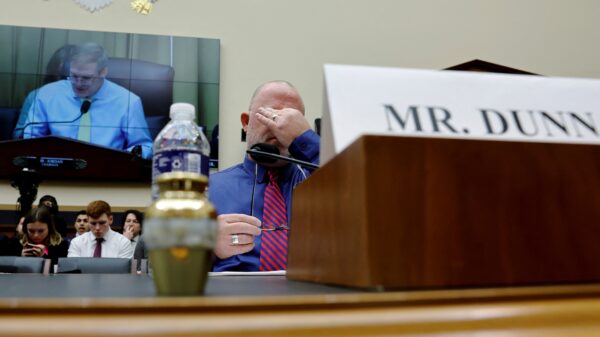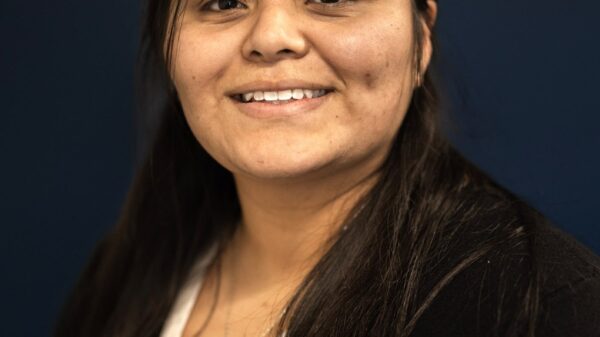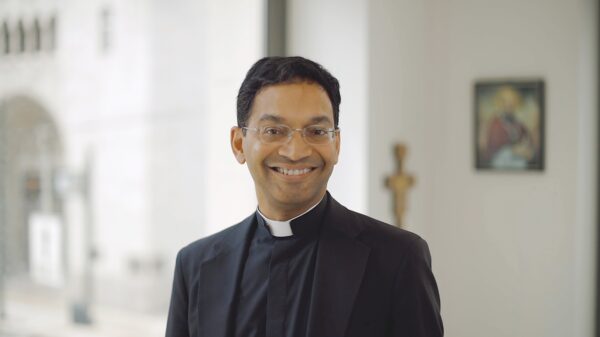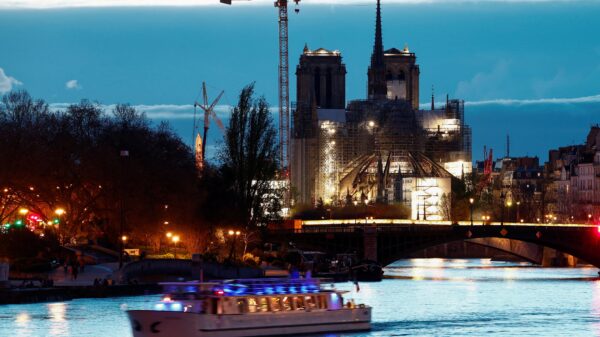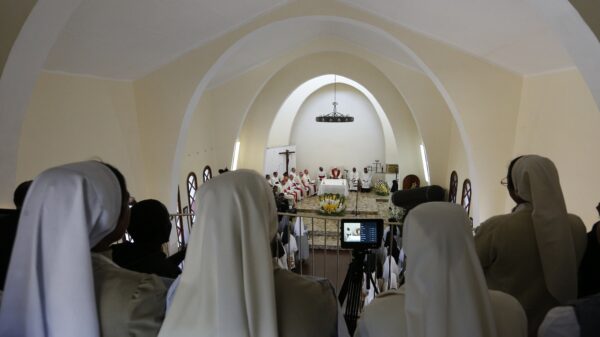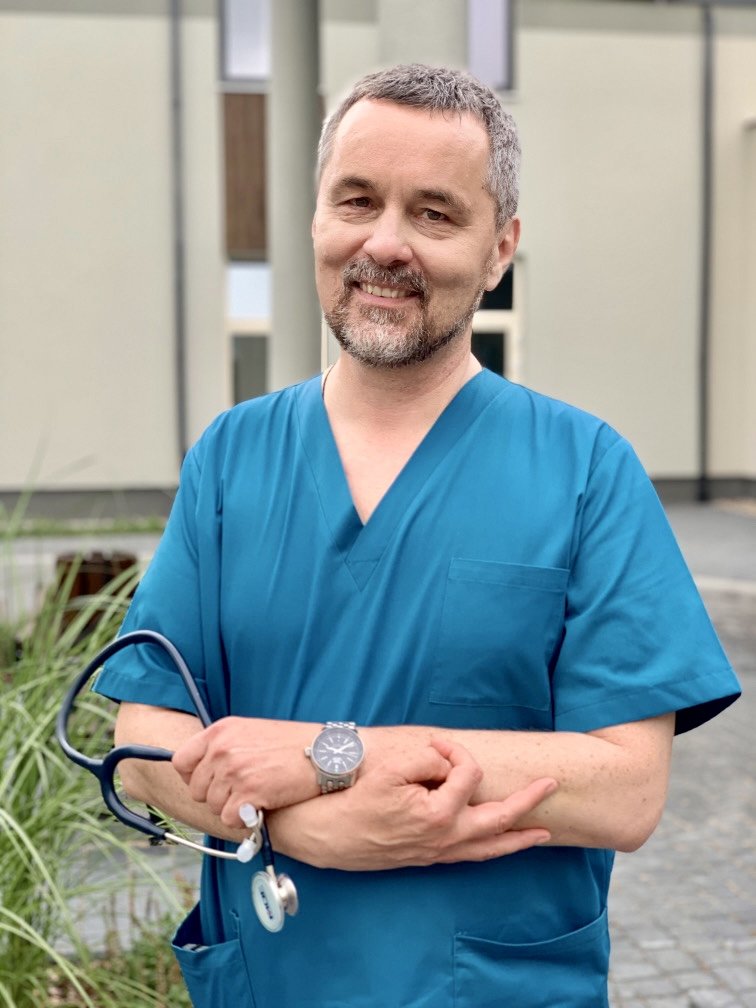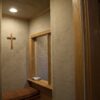By Agata Puscikowska
MAKÓWKA, Poland (OSV News) — The road to celebrate World Day of the Sick Feb. 11 in his dream modern hospice in the poorest region of Poland was long and bumpy for Dr. Pawel Grabowski. But, as a Catholic, he knew that there is nothing impossible for God and that “every suffering human being is a suffering Christ himself.”
More than 10 years ago, Grabowski, a Polish medic who worked for years in metropolitan hospitals of Warsaw and Krakow as a jaw surgeon, suffered heart failure. That moment changed his life forever.
“I decided that life is too short to do things that are irrelevant,” Grabowski told OSV News.
“I needed to do things that matter,” he said. So he made the decision to leave his city life and go to Podlaskie region in rural northeastern Poland, known as Podlasie, to treat those who are almost completely excluded from medical help because of poverty.
When he arrived in the tiny village of Makówka, at the border of Poland and Belarus, he rented a cottage and started to go around to local houses — most of which are wooden and were constructed before the Second World War.
This month, after years of going door to door to visit his patients, he was able to celebrate his first World Day of the Sick in a brand new Hospice of Prophet Elijah.
“Our patients are mostly elderly people. Sometimes a 100-year-old husband takes care of his 90-year-old wife,” Grabowski said. “These are the people that need our help in their own homes.”
Doctors, nurses and medical assistants with Grabowski’s hospice travel up to 60 miles a day to meet their patients. Medical staff doesn’t abandon them even during the harsh, snowy winters, when Podlasie roads often become impassable.
“If you ask me what Podlasie is, it is one of the most beautiful places in the country, but it is also one of the poorest ones,” Grabowski said. “It’s a land of contradictions. Local people escape it because of poverty and lack of jobs, and city people treat it as a perfect natural escape.”
It was precisely there Grabowski decided to build a modern hospital four years ago to treat patients who are too sick to be treated at home.
Since its opening in July 2022, the hospital is the most luxurious place most local patients have ever seen.
Patients at the hospice on a daily basis live in cottages in the middle of forests and fields, often without access to public transportation. They are too poor to afford cars. Pharmacies and grocery stores located miles away become impossible to reach when people get older and can’t ride their bikes. Many are left in their cottages on their own.
The cozy rooms of the hospice become their home for their final weeks.
“We help people die with dignity here. For us, every human being — the oldest and the most sick, is someone who has the highest value,” Grabowski told OSV News.
Grabowski decided to train himself with another yearslong specialty while in Podlasie — palliative care.
Jadwiga (who preferred not to give her last name), is a hospice patient who doesn’t walk on her own. She is assisted by her daughter, Alina.
“Without doctors from the hospice, taking care of my mother would become unbearable,” Alina told OSV News, adding that the crews not only help with medical needs, but also life needs.
Both women live right at the Polish-Belarusian border, where the economic situation has become even more dire in recent years.
“My mother is happy again, she is smiling again,” Alina said about the difference the hospice makes.
Elijah, the patron prophet of the hospice is, for Grabowski, someone who “trusted God. And God strengthened him.”
The hospice building was designed in the shape of a cross. It can accommodate as many as 40 patients. Not all patients’ rooms are ready; they’re waiting for more funds to come. But those that have opened are equipped to soothe the pain of patients who can’t get help in a hospital anymore.
Weronika, who also gave only her first name, is one of them. She was worried that her care at the hospice would be less adequate than what she received in the hospital, but her days in the hospice brought her relief from pain and peace of mind.
“Wonderful people take care of me,” she told OSV News. “My family can visit anytime. And if I need a priest to talk to, he’s here so that I can pray and confess.”
Podlasie is a very diverse region religiously where Catholics, Orthodox Christians, Muslims and Jews live together. Most of the patients are Catholic or Orthodox, therefore whenever they need a priest, a local minister arrives from the village.
While state insurance covers hospital care for patients in Poland, it is not always the case with hospice care, and some people needing medical assistance don’t have insurance at all. For them, Grabowski raises funds from sponsors and individual donors.
“Recently, a little girl sent us all her savings and thanked (us) for all that we do for ‘the grandparents,'” Grabowski said.
For him, hospice care is essential in the discussion about euthanasia. “People don’t want to get killed,” Grabowski stressed. “They just want to feel needed, loved and they should not suffer,” all of which he said contemporary medicine can provide.
None of the patients ever asked him to proceed with euthanasia, which is illegal in Poland.
“It is always our broader task — to testify and teach how to best give care to people that are at the end of their life path,” Grabowski said.
On top of that, he underlines another task.
“We help people be born into heaven.”
Agata Puscikowska writes for OSV News from Warsaw, Poland.


